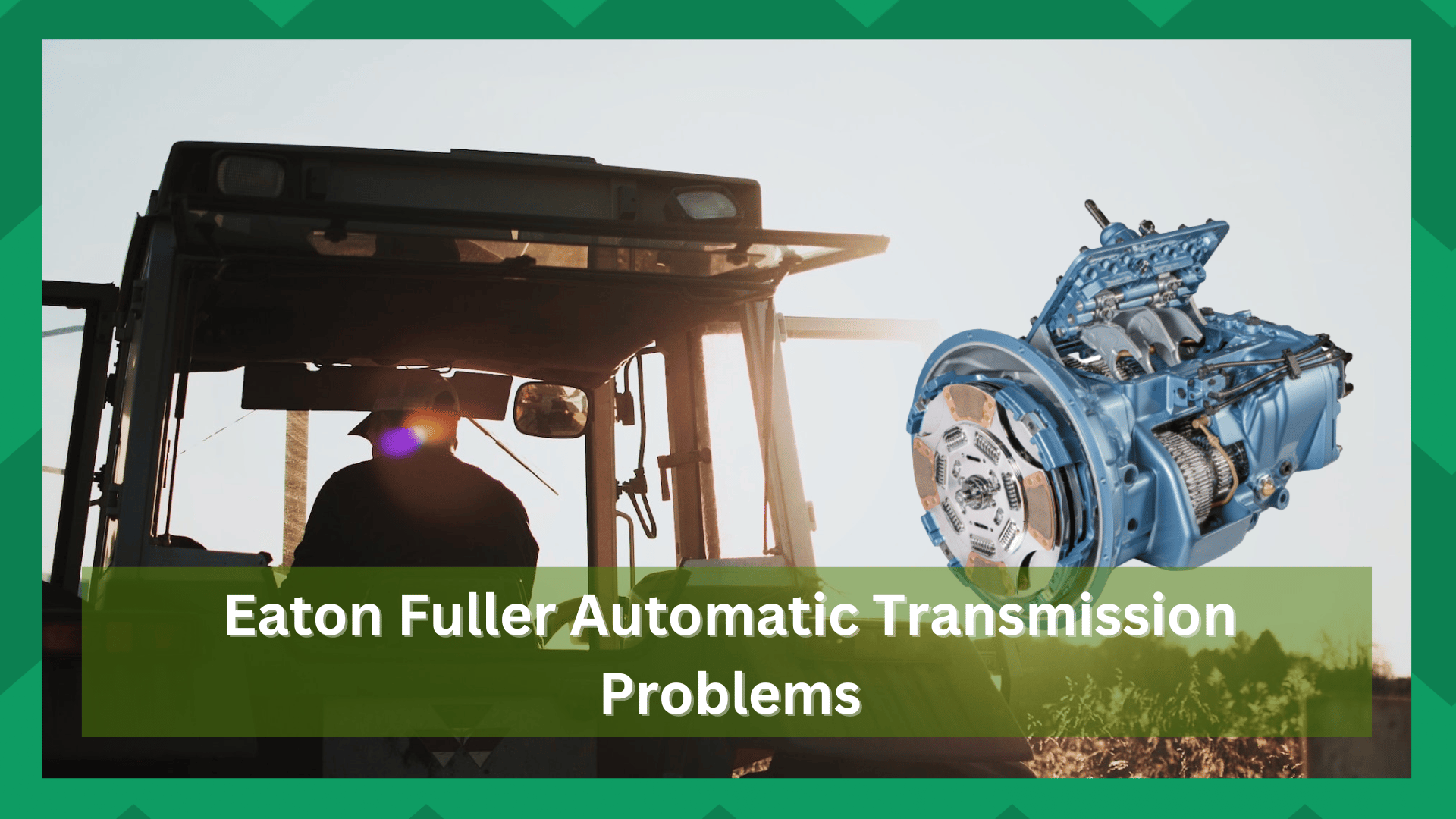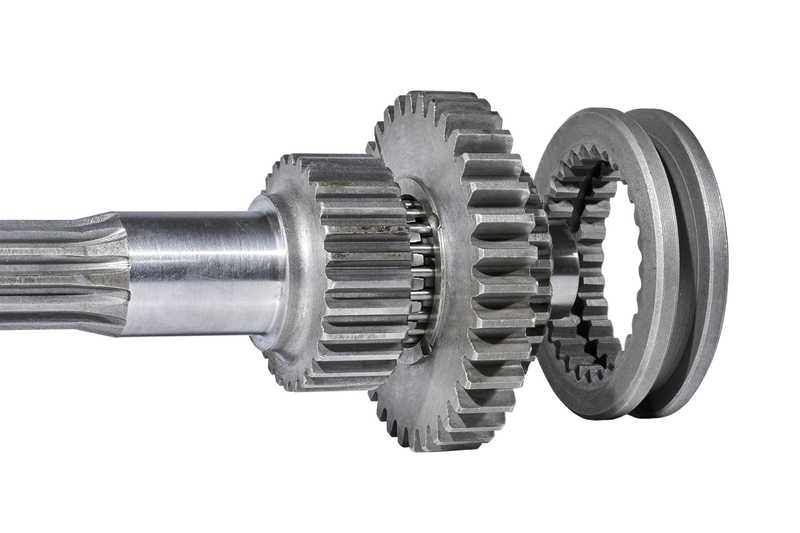
Transmission issues can make the life of an operator quite uncomfortable.
It can lead to problems like noise production, the lag between the gears, etc. Moreover, if proper attention is not given on time, these problems might lead to the complete failure of the gearbox.
If you also face the Eaton Fuller automatic transmission problems, go through the following guide to understand the situation in-depth.
Common Eaton Fuller Automatic Transmission Problems
If we start listing the transmission problems, there can be many, but we will discuss the recurring ones.
- Issue of Vibration
If you are feeling extra vibration while operating the machine, it may be due to some problems in the system’s transmission.
Vibrations are the primary reason behind the reduction in comfort level. It is because the driver can feel it.
Moreover, extra noise can significantly affect the operator’s focus, directly affecting their productivity.
Therefore, solving this issue as soon as possible is necessary to avoid further challenges. There can be many ways to cater to the problem, but the most effective one is to know about the reasons which are causing it.
Factors contributing to the vibration issue are:
- Worn-out gears,
- Presence of noise,
- Broken bearings,
- Wear of the shaft.
Now, after knowing the reason behind the vibration issue, you should also understand why they were caused.
It is necessary to know about them because only in this way will you be able to prevent them in the future. Otherwise, you will experience this issue again. The most common reasons that contribute to this issue are:
- Rough driving,
- Low maintenance,
- Worn engine parts,
- Broken suspension,
- Alignment needs to be balanced.
- Noise
Eaton Fuller automatic transmissions are well-known for being durable and reliable. However, like all mechanical devices, they are not immune to problems. One common issue that can affect these transmissions is excessive noise.
A few different things can cause transmission noise in an Eaton Fuller automatic transmission. One possibility is that the transmission fluid is low. This can cause the transmission to make grinding or whining noises.
Another option is that the transmission filter is dirty or clogged. This can also lead to making grinding or whining noises.
If your Eaton Fuller automatic transmission is making excessive noise, it is essential to have it checked out by a qualified technician as soon as possible.
Transmission problems can often be fixed relatively easily if they are caught early. However, they can lead to more severe and expensive problems if left unaddressed.
- Difficulty in Gear Shifting
Another factor contributing to the discomfort of the driver is hard-to-gear shifting. If facing this issue, the operator has trouble shifting the lever from one gear to another.
These issues can arise due to problems in remote linkages. Therefore, your first step should be the inspection of remote connections. This problem can occur because of many reasons, but the most common ones are:
- The lubrication effect has reduced between the joints, or
- The presence of obstructions between the gears,
- The presence of worn parts in the gearbox can lead to an increase in friction force.
- Gear Rattle at Idle
If you hear a rattling noise from your transmission at idle, it could signify a severe problem. This is usually caused by a worn-out input shaft bearing or a loose torque converter.
If you have an automatic transmission and hear a rattling noise at idle, getting it checked out as soon as possible is essential.
This could signify a serious problem, such as a worn-out input shaft bearing or a loose torque converter. Left unchecked, this can cause extensive damage to your transmission and ultimately lead to failure.
If you notice this problem, you should first check the fluid level in your transmission. If it’s low, topping it off may solve the problem. If the fluid level is satisfactory, you’ll need to take your vehicle to a mechanic.
- 2-3 Shift Harshness
If the transmission shifts harshly from 2nd to 3rd gear, it could be due to a few different issues.
One possibility is that your transmission fluid is low or dirty. Another case is that the shift solenoids are worn out or not functioning correctly.
If you’re experiencing harsh shifting from 2nd to 3rd gear, check your transmission fluid level first. If it’s low, simply topping it off may solve the problem.
If the fluid is clean and at the proper level, get your vehicle inspected by a mechanic.
- Shaft Twist/Fracture
The transmission shaft is the main component that connects the engine to the wheels. It is a long metal rod that runs through the center of the transmission.
The shaft is supported by bearings and gears that allow it to rotate freely. The shaft also has a spline that fits into the engine’s flywheel.
The problem with the transmission shaft is that it is prone to twisting or fracturing, especially at the spline.
This can happen if the engine is revved too high while in gear or if the transmission is shifted improperly. If the shaft fractures, it can cause the engine to lose power or stall.
If you think your transmission shaft may be damaged, it is vital to have it assessed by a professional.
- Ruptured Transmission Case
The transmission case is the metal housing that contains all of the transmission’s internal components. The case is filled with transmission fluid, which helps to keep the gears and bearings lubricated.
The problem with the transmission case is that it can rupture or break open. This can happen if the transmission is overloaded or if it overheats.
If the case ruptures, transmission fluid will leak out, and the transmission will not be able to function correctly.
- Worn Housing
The transmission housing can become worn over time. This is especially true if the transmission needs to be appropriately maintained. Worn housing can cause several problems, including:
- Leaks– Transmission fluid leaks can occur in the transmission housing due to wear. This can lead to a loss of transmission fluid, which can cause the transmission to overheat or even fail.
- Misalignment – The transmission housing can become misaligned over time. This can cause the gears to grind and eventually fail.
- Wear on Components– Worn housing can cause wear on the components inside the transmission, including the gears, bearings, and seals. This wear can lead to problems such as:
- Noise– Worn components can cause increased noise from the transmission.
- Premature failure – Worn components can fail prematurely, leading to a need for repairs or even replacement of the transmission.
- Lubricate the transmission
If you have an Eaton Fuller automatic transmission, one of the essential maintenance tasks is regularly lubricating the transmission.
This will help keep the moving parts properly lubricated and prevent many common problems, such as premature wear and tear.
In addition, it is important to check the fluid level in the transmission and to add more fluid if needed.
The best way to get this done is by checking the level when the transmission is at its warmest after being driven for a while.
If you notice any leaks in the transmission, it is essential to have them repaired as soon as possible. Leaks can lead to low fluid levels, which can cause the transmission to overheat and suffer damage.
- Heat
Heat is a significant issue caused by the transmission issue. It occurs primarily due to friction between the gears.
Usually, the temperature should be around one hundred Fahrenheit, but it should be at most the threshold of two hundred and forty-five Fahrenheit in case of overheating.
This will result in the dissipation of gear oil, which will affect the overall life of the transmission system. There can be many reasons behind the overheating issue, some of which are given below:
- Gear oil is lower than the specified level, or
- Gear oil is not of good quality, or
- Are you operating the machine at high RPM, or
- You are continuously using the machine at lower RPMs, or
- The distance between the exhaust system is significantly less, or
- You overdrove the machine, or
- Operation of the machine in hilly areas.
The transmission may overheat if it is worked too hard, such as when towing a heavy load. Overheating can cause the fluid to break down, leading to transmission failure.
To prevent overheating, ensure the transmission has adequate cooling and does not exceed the maximum operating temperature.
Conclusion
It is concluded from the above discussion that transmission issues are problematic. They must be solved as soon as they appear because delays will lead to further problems.
Moreover, the delay can cause the failure of the gearbox, which can turn out to be quite heavy on your pocket.
Therefore, if the maintenance expense gets too high, you should claim your warranty to save money. Usually, the transmission problem starts with the production of extra vibration, heat, and hard gear shifting.



